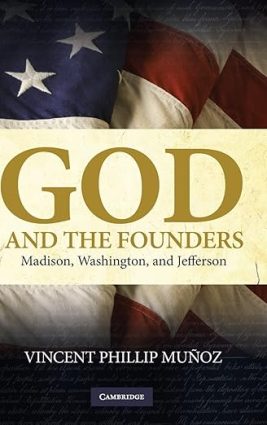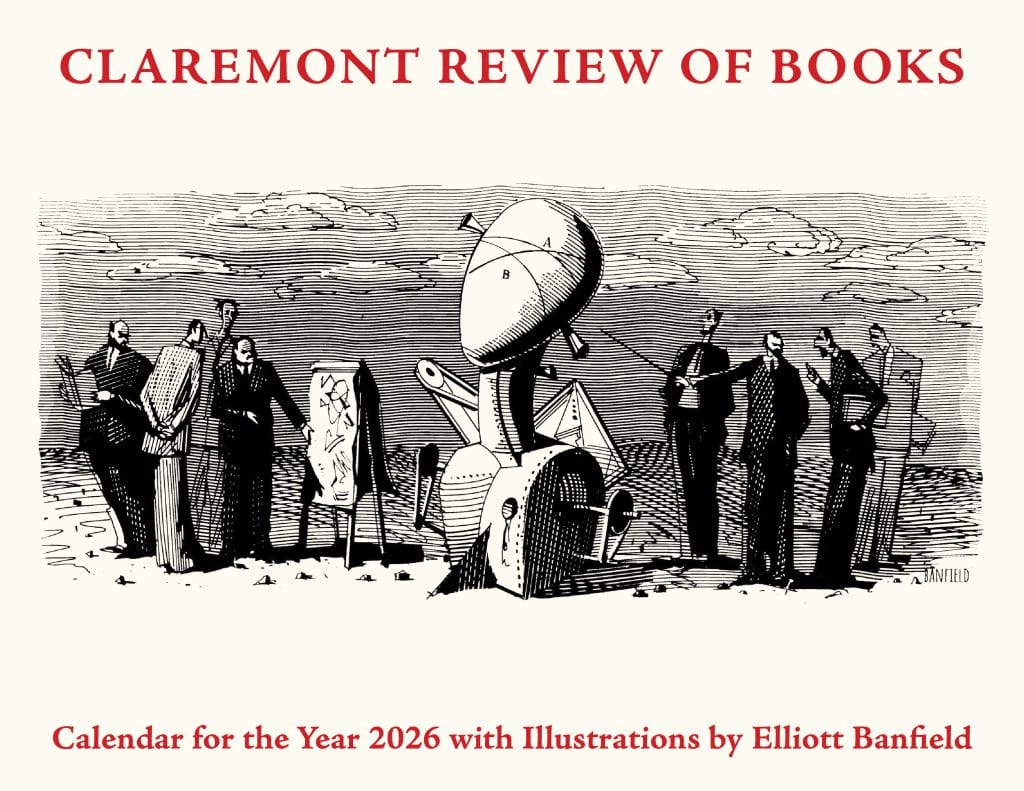Books Reviewed
Every American would agree that religious liberty is a fundamental principle of our constitutional order. But one cannot go much further than that without encountering difficulties. Is religious liberty fostered, or hindered, by various government actions that attempt to honor the importance of faith in most Americans’ lives? Are the activities of churches or other religious organizations properly subject to government regulation—and if so, which activities? Do the claims of religious faith require the state to allow private behavior that would be prohibited for anyone not relying on the claims of faith? In separating public authority from the authority of revelation, did the Constitution’s framers elevate an aggressive Enlightenment secularism as the paradigm of American citizenship and public discourse?
In God and the Founders, University of Notre Dame political science professor Vincent Phillip Muñoz sheds welcome light on these questions with rare theoretical rigor, practical wisdom, and historical depth. What is particularly welcome is his ability to clarify what is confusing, and to confuse what is too often taken to be clear. Challenging the view of some originalists that we can find “a uniform understanding of the proper relationship between church and state” among the founders, he demonstrates that instead there was significant disagreement among them “about the meaning of religious freedom and how church and state ought to be separated.” Focusing at length on the “church-state political philosophies” of James Madison, George Washington, and Thomas Jefferson, Muñoz shows that these leading founders had very different views on this thorny subject.
Madison’s was probably the most philosophically rigorous. Holding fast to a principle Muñoz calls “noncognizance,” Madison “maintained a sustained commitment to the maxim that the state may neither privilege nor penalize citizens on account of their religion.” His principle forbade any support on the government’s part for religion in general, since the government was prohibited from taking any notice of religion whatsoever. To use chaplains in the armed forces, to accord tax exemptions to churches that would not be available to non-religious organizations, or to exempt citizens on religious grounds from laws that were generally applicable—these would all be out of bounds for Madison. But not because of any hostility to religion; on the contrary, Madison believed that faith would best flourish in a political order that could neither caress it nor kick it around.
Muñoz finds Thomas Jefferson’s views to be further from Madison’s than is generally thought. Digging deeper into Jefferson’s words and deeds than many have done, he shows the third president’s abiding principle to be a form of “anticlericalism.” Convinced that “irrational” faith in miracles and the like had the effect of putting dangerous political power in the hands of clergymen, Jefferson was willing to countenance outright state discrimination against organized religion—barring ministers from public office, for instance.
The book’s biggest surprise is George Washington. It is a fine thing that he is included at all; Muñoz makes a nice contribution to the ongoing rediscovery of Washington as a serious thinker in his own right. Of the founders considered here, our first president was the one most in favor of government’s active encouragement of religion. Although the remarks of Washington’s Farewell Address on this subject are well-known, and are paid proper attention here, Muñoz draws additional, important insights into Washington’s views from his military career and his presidency. From his use of military chaplains, to his impatience with the claims of the religiously scrupulous to avoid military service, to his initial support of tax subsidies for Virginia churches, to his manner of addressing religious groups and the wider public with pious but nonsectarian rhetoric, we can see that Washington followed a policy of “ecumenicalism,” but one that subordinated the claims of conscience to the claims of good republican citizenship.
* * *
Following the exploration of each man’s view on its own terms, Muñoz makes an extended foray into how each of these founders would probably have voted in the most consequential cases that have arisen in the last several decades under the First Amendment’s Establishment and Free Exercise Clauses. One might find these pages dense at times, but the analysis is painstaking and the payoff is profound: it seems that if we are to rely on the founders for the answers to our interpretive problems, we have very different paths from which to choose.
In the end, Muñoz opts for a modified Madisonian approach, a principle of “no legal privileges, no legal penalties,” as providing the most advantageous and just accommodation between faith and politics. But one could equally choose Washington or Jefferson and claim the founding’s imprimatur. And Muñoz does not consider that Madison’s church-state thinking reflects a kind of judicial temperament, whereas Jefferson seems to think chiefly in lawmaking categories, seeking to impart a certain shape to American society as a founder-legislator, while Washington (not surprisingly) thinks like an executive, responsible for the orderly lawfulness of a people who already have well-formed habits and need to get along with each other. Thus these three founders seem to embody the separation of powers, raising the further question of who should claim interpretive authority over the First Amendment.
Given the variety of views among the American Founders, does Muñoz reject originalism? On the contrary, he promises a second book in which he will discuss “the original meaning of the First Amendment’s religion clauses.” Although this will be a very welcome sequel, God and the Founders already stands as a first-rate work of history and jurisprudence on the space that our republic makes for the faith of its people.







